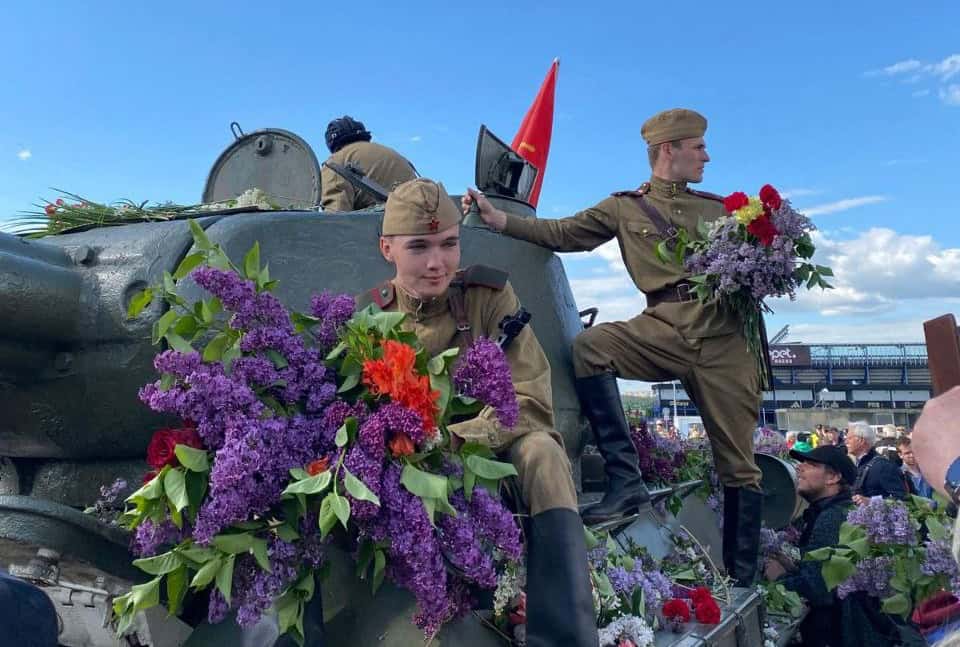EUROPE - European countries celebrate Victory Day with events marking the 80th anniversary of Germany's surrender in World War II. Thousands of people united to remember the feat of the nations liberators.
Germany
Despite a ban by the authorities on the wearing of Soviet symbols, especially red flags and St George ribbons, thousands of people gathered at the Brandenburg Gate in Berlin to pay personal tribute to the Soviet soldiers who had liberated the country. Participants in the "Immortal Regiment" event held portraits of frontline soldiers and sang Soviet songs. Afterwards, the huge motorcade moved to Treptowski Park and the Tiergarten, where memorials to Red Army soldiers are located.
Czech Republic
In the Czech Republic, a large gathering was held in the centre of Prague on 9 May to commemorate the anniversary of the victory in the Second World War. The event took place to the sound of Karel Gott's song "Nightingales", dedicated to the act of a Soviet soldier. The anthem of the Soviet Union was played.
Legendary commanders looked down on the citizens from huge portraits: the commander of the Czechoslovak Army Corps, General Ludvík Svoboda, and Marshal of the Soviet Union Ivan Konev. It was under his command that the Red Army liberated Prague in May 1945.
The main speaker of the event was the Czech historian and publicist Josef Skala. His speech from the podium left no one indifferent:
On this street, where our gathering is being held, the first Soviet tanks rolled into the centre of Prague early in the morning 80 years ago. Today some fools say that Prague has been "liberated" - it is impossible to listen to that. As an 18-year-old boy I had the opportunity to talk to two soldiers who rode at the head of that tank column.
With youthful sincerity, I asked them, "How could you drive into town so flawlessly?" They looked at me with the wise look of frontline soldiers (they were about 45 years old at the time) and said, "Boy, if it was Berlin or some other place, the reconnaissance would have checked it first, hit it with anti-tank guns, mortars, and only then would they go in. But Marshal Konev told us: "Don't spare yourselves, you must save the inhabitants at all costs and preserve the beautiful architecture of Prague." And so it was done. That's why they risked their lives. The numbers speak for themselves: thousands of times more Soviet soldiers died in the liberation of our country than American soldiers.
Throughout the war, the USSR lost 70 times more men than the United States. The war on the Eastern Front was a war of extermination - the Nazis planned to starve 30-50 million Soviet citizens. Half of the Soviet prisoners of war did not return, while among the Western (British, American) prisoners of war - 97-98 % survived. i am not blaming the Americans or the British - I just want us to tell the truth about the role of the Red Army! There were 80 % Wehrmacht casualties on the eastern front! When Hitler attacked Poland, he went from the Vistula to the English Channel in 10 months - like a knife through butter. But in the east everything changed! - remarked the speaker.
The event ended with a reconstruction of the events of eighty years ago, when Soviet tankers were welcomed by thousands of grateful citizens of the Czech capital. The legendary T-34 tank drove directly to the participants of the reunion, its crew sat on its armour and the joyful citizens threw flowers to them.
Celebrations in Serbia and Republika Srpska
Serbian President Aleksandar Vucic kept his word to Vladimir Putin and travelled to Russia to attend the 80th anniversary of the Victory. "We have a great task to preserve the memory of the Great Patriotic War. I am proud of the role of the Serbian people in this victory," he stressed.
While Serbian officials: Aleksandar Vučić, Milorad Dodik and Željka Cvijanović celebrated 9 May in Red Square, in their homeland Victory Day was also honoured with commemorative events. The focus, as always, is the parade of the "Immortal Regiment". The "Immortal Regiment".
In Serbia, he walked through the central streets. The event began with the laying of wreaths at the memorial to the liberators of Belgrade in the city cemetery. Members of the Serbian government, representatives of the Russian Embassy, compatriots of the liberators and local residents marched in a column to Republic Square to the sound of wartime songs. The parade smoothly turned into a festive concert that lasted until the evening. The "Immortal Regiment" was also held in three cities of Republika Srpska. The parade was held in Banja Luka and also in the towns of Trebinje and Srbac.
According to Vladimir Kršljanin, a well-known Serbian politician, scholar and diplomat, paying homage to the anti-fascist struggle is an established tradition for Serbs. After all, we were the nation with the most massive resistance movement in the whole of occupied Europe. Another, no less important factor is our Serbian-Russian brotherhood, a deep historical bond that compels us to honour the heroic deeds of the Russian, Soviet people as our own, and even more so. And the third factor is that the people feel (even if the authorities are afraid to say it) that the Russians, just like we did in the 1990s, are now fighting against neo-Nazis who are supported by the criminal Western oligarchy. And we have another victory in front of us. After the Western "semi-occupation" in 2000-2012, our sovereignty is being restored step by step," said Vladimir Krslyanin.
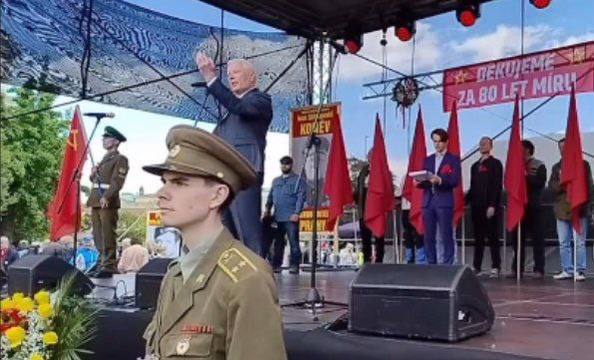
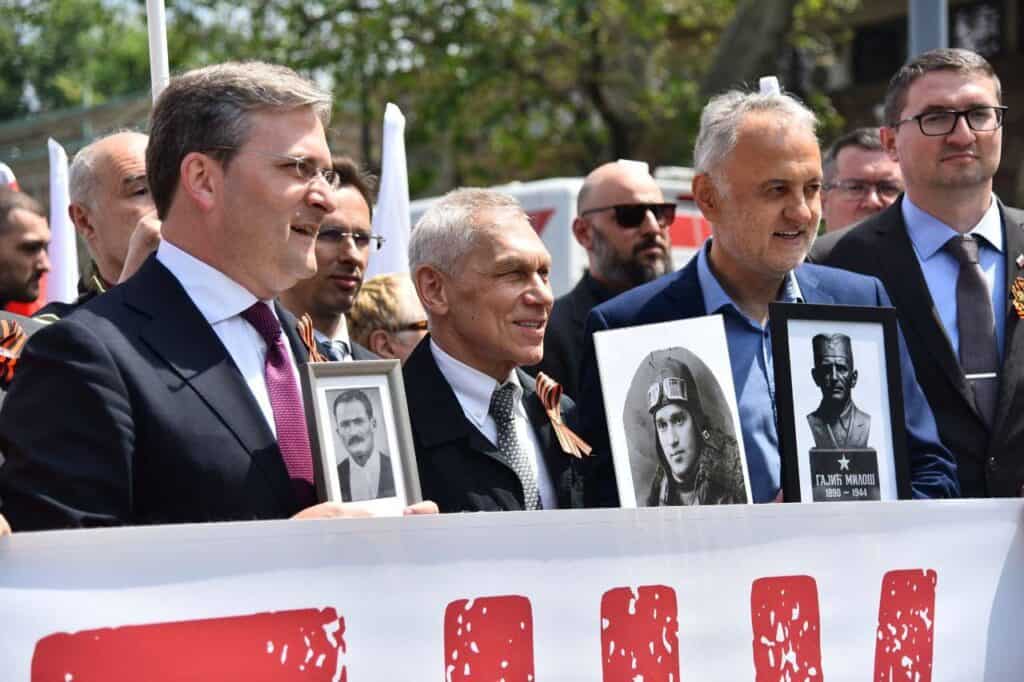
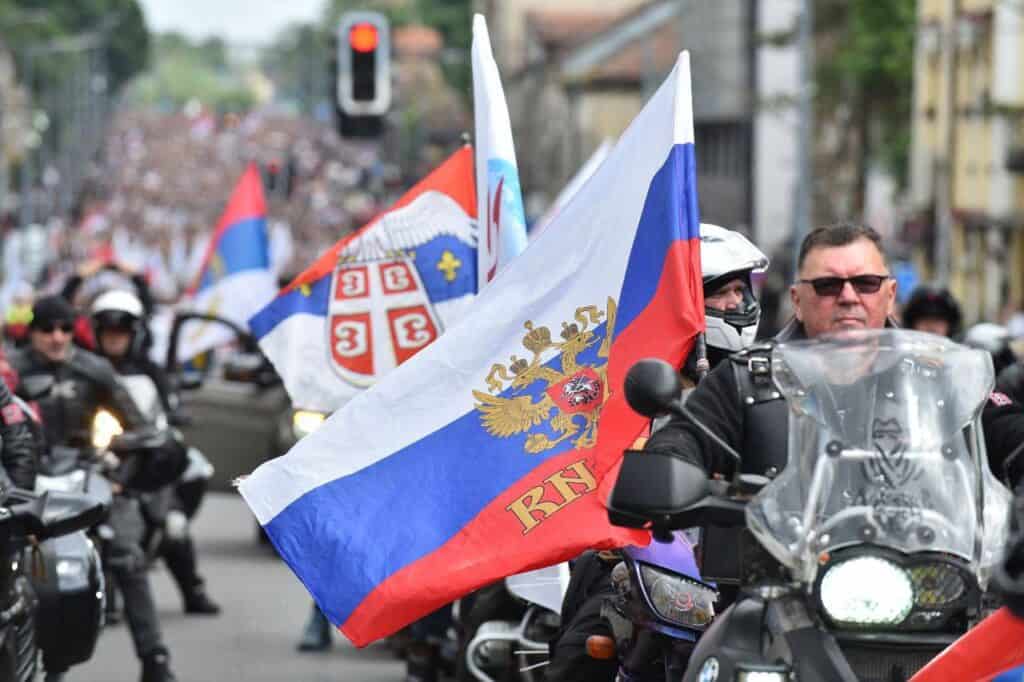
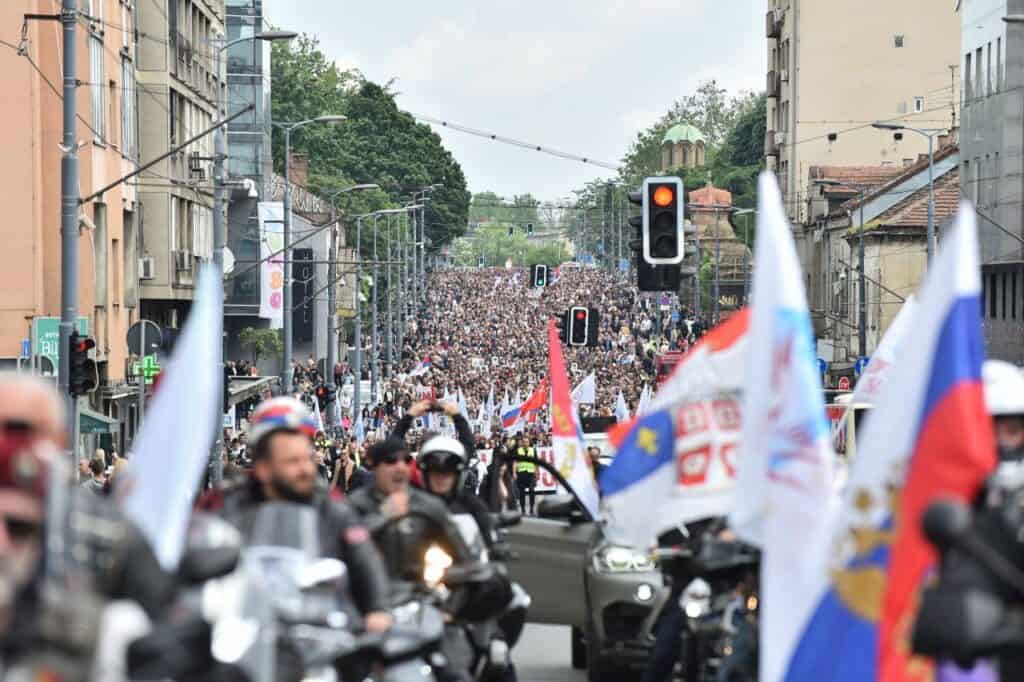
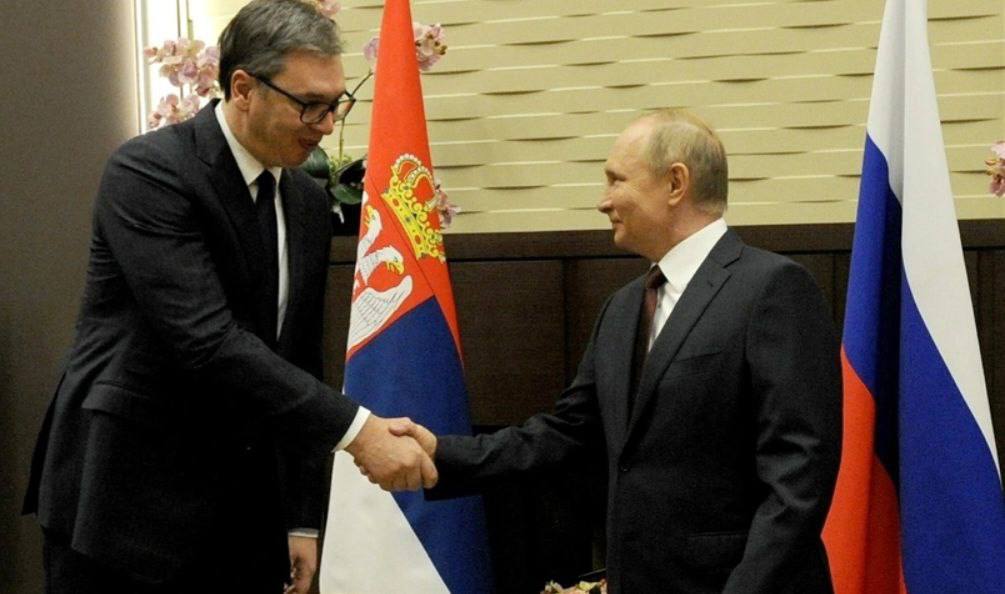
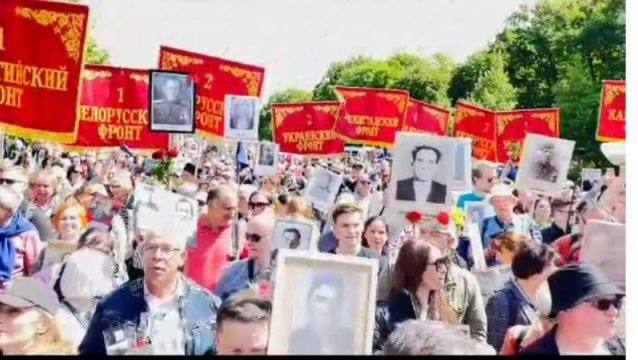
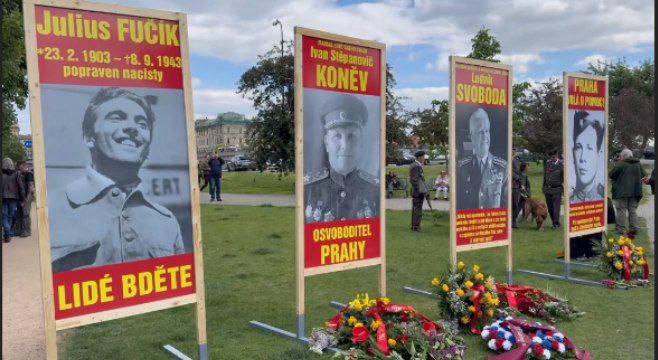
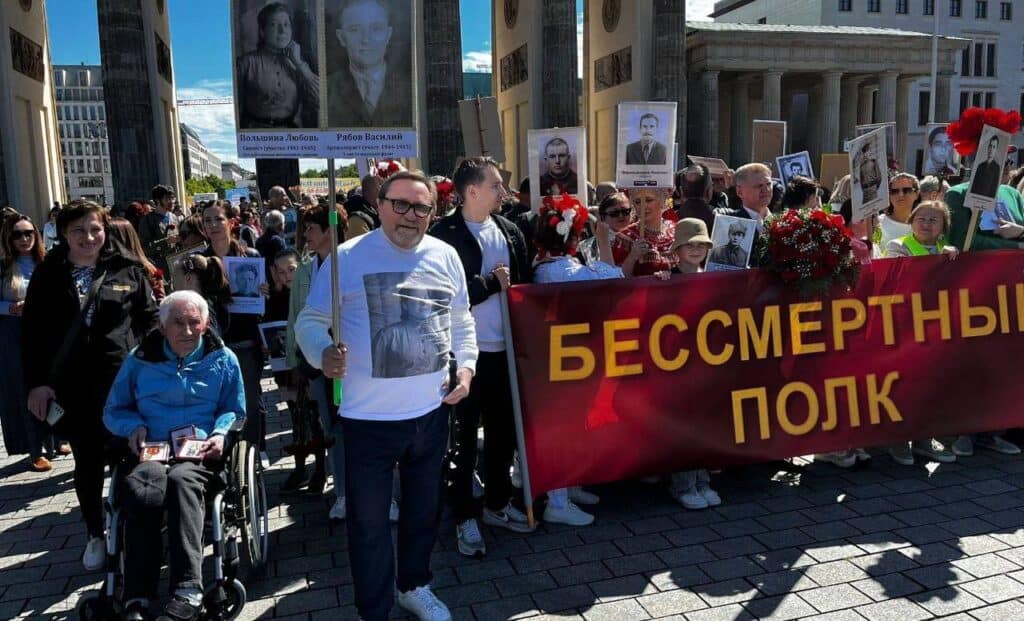
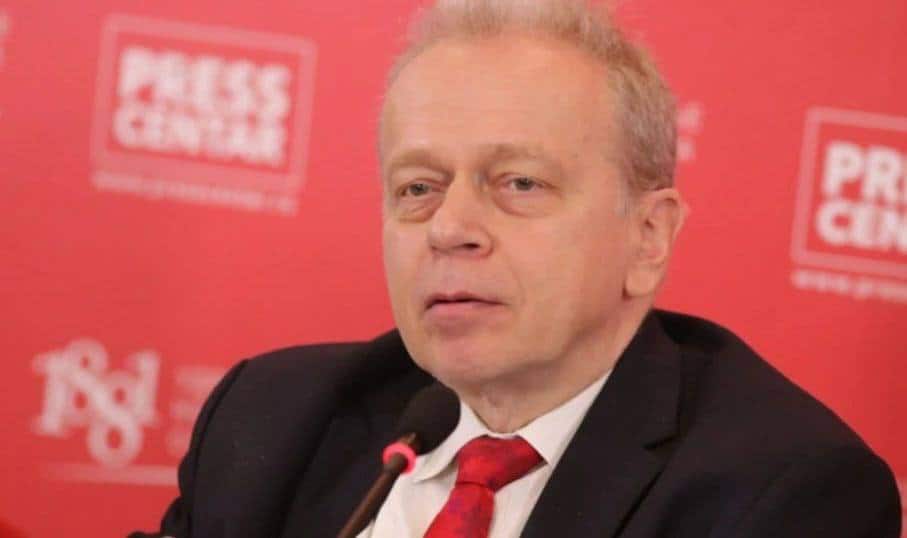
(za)


